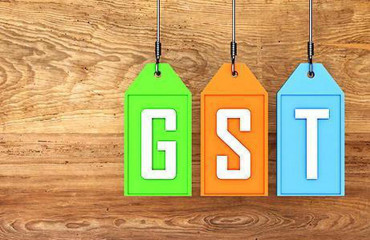
The Lok Sabha recently raised queries regarding the implementation of Aadhaar-based authentication for GST registration in Andhra Pradesh. In response, the Ministry of Finance provided insights into the pilot project’s progress, data analytics mechanisms, and training initiatives for GST officials in the state.
The Lok Sabha recently raised queries regarding the implementation of Aadhaar-based authentication for GST registration in Andhra Pradesh. In response, the Ministry of Finance provided insights into the pilot project's progress, data analytics mechanisms, and training initiatives for GST officials in the state.
Government, based on GST Council recommendations, has introduced sub-rule 4A in Rule 8 of CGST Rules, 2017. This rule facilitates risk-based biometric Aadhaar authentication for registration applicants. The pilot project's scope extends beyond the testing phase, with effective implementation in Gujarat, Puducherry, and Andhra Pradesh.
To combat fraudulent practices, advanced data analytic and artificial intelligence tools such as NETRA, BIFA, and ADVAIT are deployed. These tools aid in identifying risky taxpayers and detecting instances of fake input tax credit, including in Andhra Pradesh. Continuous updates and modifications based on field feedback ensure tailored responses to regional challenges and patterns.
Adequate resources and training are essential for effective fraud detection and prevention. The National Academy of Customs, Indirect Taxes, and Narcotics conduct various training programs for GST officials, including those from Andhra Pradesh. These programs focus on enhancing officials' skills in fraud detection techniques and tax evasion prevention, ensuring they stay abreast of evolving strategies.
The implementation of Aadhaar-based authentication for GST registration marks a significant step towards enhancing compliance and combating fraud in the tax system. With ongoing pilot projects in Andhra Pradesh and other regions, supported by robust data analytics and training initiatives, the government demonstrates its commitment to strengthening GST administration. Such measures contribute to a more transparent, efficient, and equitable tax environment, fostering economic growth and integrity in the taxation system.
***
GOVERNMENT OF INDIA
MINISTRY OF FINANCE
DEPARTMENT OF REVENUE
LOK SABHA
UNSTARRED QUESTION No. 340
TO BE ANSWERED ON MONDAY, FEBRUARY 5, 2024/MAGHA 16, 1945 (SAKA)
AADHAAR-BASED AUTHENTICATION FOR GST REGISTRATION
340. Shri Maddila Gurumoorthy:
Will the Minister of FINANCE be pleased to state:-
(a) whether the Government has any plan to implement the pilot project of Aadhaar-based authentication for GST registration in Andhra Pradesh beyond the current testing phase;
(b) if so, the details thereof?
(c) whether the specific data analytics and risk parameters are being used to detect fake ITC in Andhra Pradesh;
(d) if so, whether these mechanisms are likely to be tailored further to address regional challenges and patterns and if so, the details thereof; and
(e) the manner in which the Government is ensuring adequate resources and training for GST officials in Andhra Pradesh to effectively combat sophisticated fraud schemes?
ANSWER
THE MINISTER OF STATE FOR FINANCE
(SHRI PANKAJ CHAUDHARY)
(a) and (b) Based on the recommendations of GST Council, sub-rule 4A has been inserted in Rule 8 of CGST Rules, 2017 to provide for risk based biometric-based Aadhaar authentication of registration applicants. The provisions of the said sub-rule has been made effective in the State of Gujarat vide Notification no. 27/2022-Central Tax dated 26.12.2022, in the State of Puducherry vide Notification number 31/2023-Central Tax dated 31.07.2023 and in the State of Andhra Pradesh vide Notification number 54/2023-Central Tax dated 17.11.2023.
(c) and (d) Various data analytic and artificial intelligence tools such as NETRA (Networking Exploration Tools for Revenue Augmentation), BIFA (Business Intelligence and Fraud Analytics) & ADVAIT (Advanced Analytics in Indirect Taxation) are being used to identify risky taxpayers, suspected of passing or availing fake input tax credit, including in the State of Andhra Pradesh.
Further, based on the feedback received from the field formations, these tools are updated/modified from time to time.
(e) Various training programmes are being conducted by National Academy of Customs, Indirect Taxes and Narcotics from time to time for GST officials, including that from the State of Andhra Pradesh, inter alia, on techniques for detection of frauds and prevention of tax evasion.
